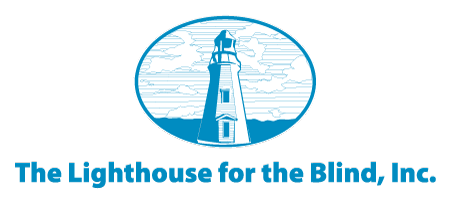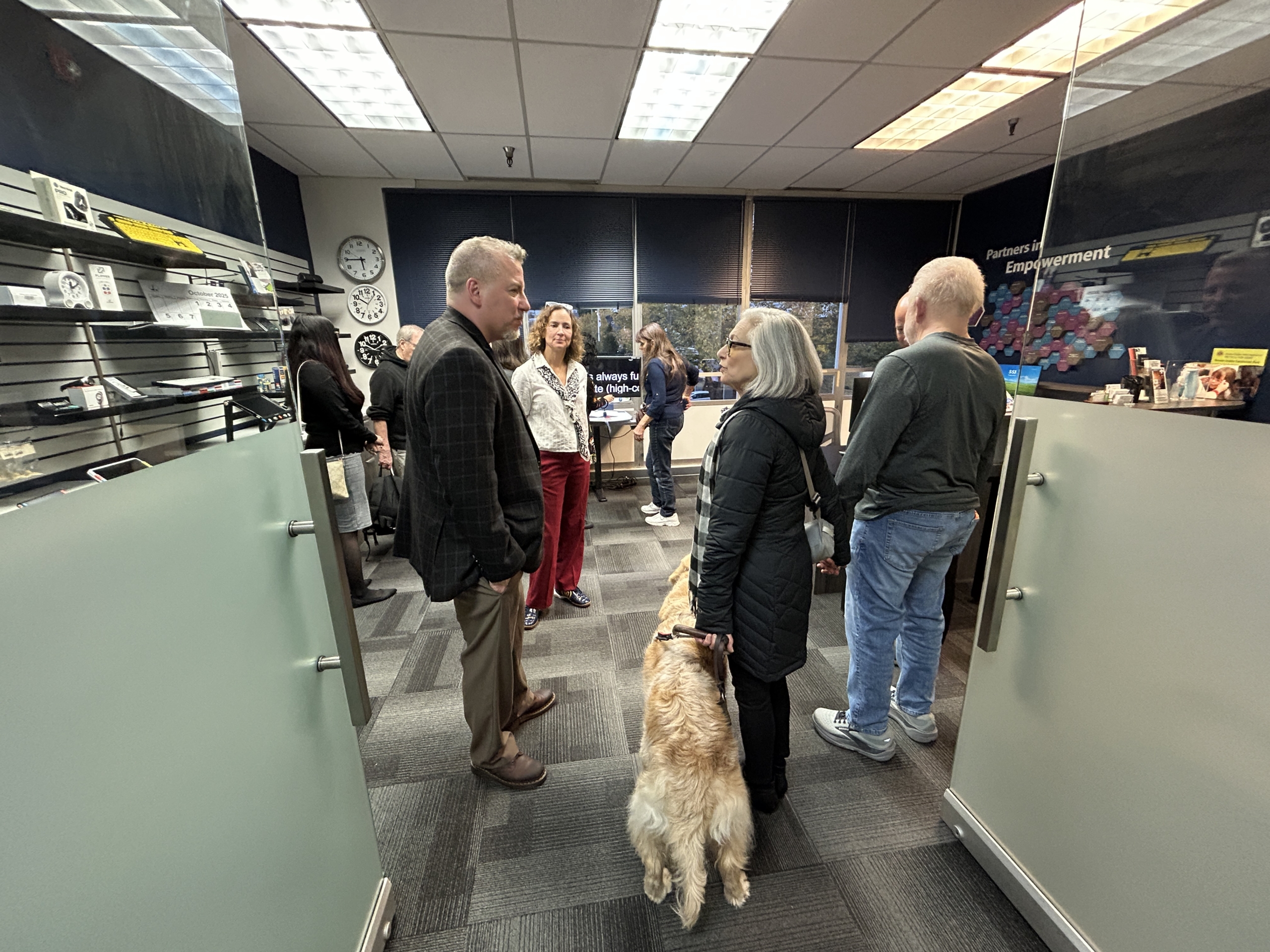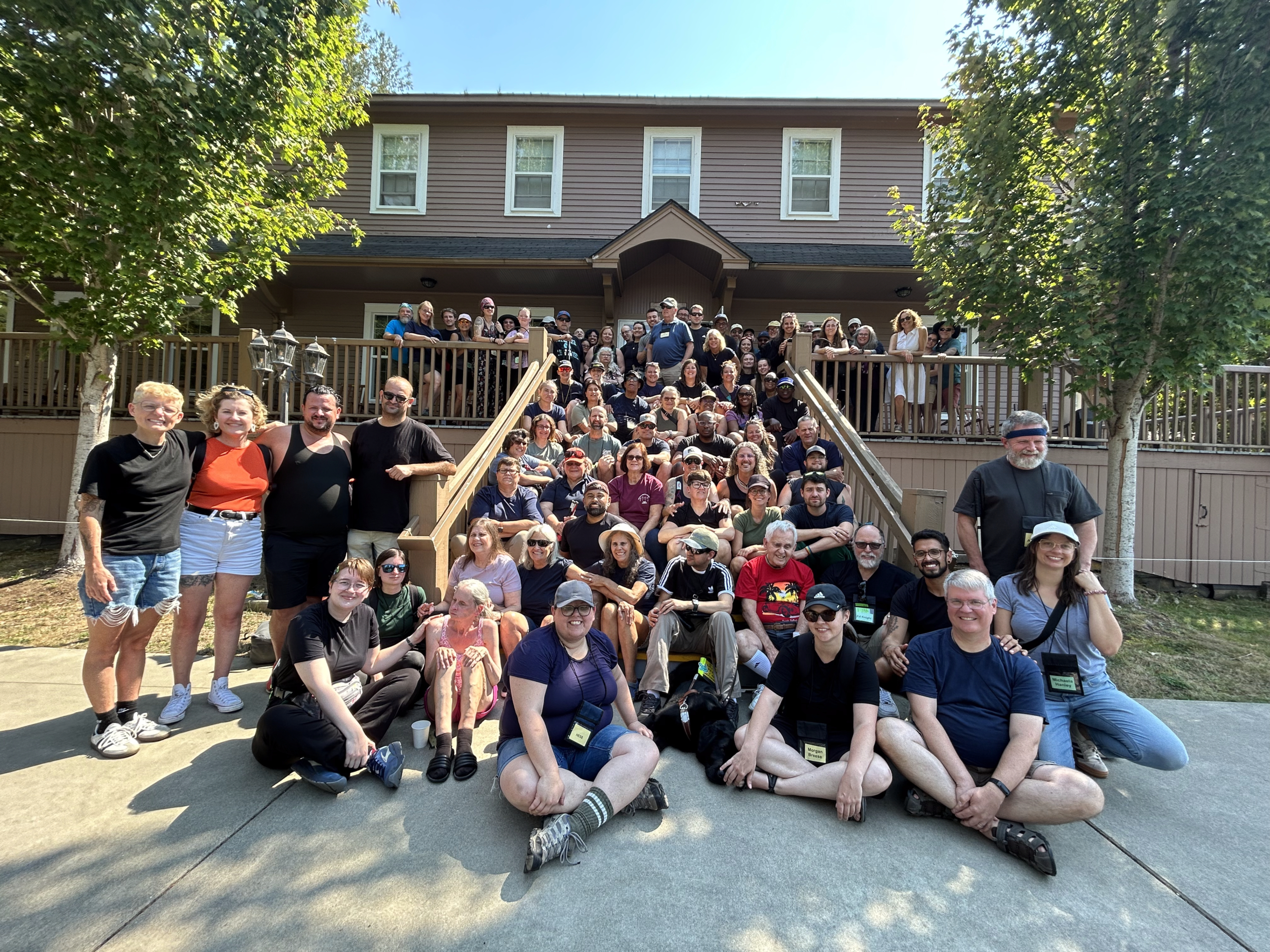The 34th Annual Deaf-Blind Retreat is on the horizon

Before coming to work at The Lighthouse for the Blind, Inc., Paul attended the Deaf-Blind Retreat for the first time in 1991 while living in Connecticut. “I didn’t really know about the Deaf-Blind community. I was still fairly young and had a pretty good tunnel of vision. People suggested that I come check it out and I was dumbfounded. The community was huge; it was a whole new world to me. There was a real diverse group of people who communicated in many different ways. Some communicated tactilely, some used gestural communication; some had a small tunnel of vision, some a big tunnel. There were a lot of activities. I felt that all activities were accessible to me and safe.”
A lack of accessibility and safety are two of the barriers that the Deaf-Blind Retreat strives to remove during the week-long gathering. With approximately 150 volunteers supporting the 75 attendees as American Sign Language (ASL) interpreters, Support Service Providers (SSP), and workshop instructors, a community of inclusion encapsulates the focus of the Retreat. Paul recalls that “because people who are Deaf-Blind have the dual disability of deafness and blindness it is sometimes hard to find places where you can access everything safely. So, at the retreat, they have a SSP with you that provides visual information. I was able to glean from that camp a lot of information that I shared with people back home in Connecticut: best practices, if you will. So, I’d say that fun is the overarching goal, education second, and then a sense of connection and interaction among people.”
The Deaf-Blind Retreat takes place at Seabeck Conference Center, located on Hood Canal. The 90 acre property provides opportunities for Retreat participants to enjoy a variety of outdoor activities and water sports. The Lighthouse for the Blind, Inc. has worked with the conference center to provide an accessible experience for retreat participants. The center has added railings to their boardwalk, created permanent braille signage on all the buildings, and created tactile maps so that attendees can find their way around and exit buildings safely in case of an emergency.
The Deaf-Blind Retreat also focuses on access, providing access to activities, information, and a group of peers who can share their experiences and techniques to overcome barriers that they have faced. Paul explains how the retreat allowed him to reshape his experience: “this was my experience prior to going the retreat: I was losing my vision and feeling a real sense of isolation and disconnect from the world and people around me. And people around me did not understand what I was going through. Innate in my relationships and in my environment were barriers that were growing exponentially as my eyesight deteriorated. So, when I decided to join the retreat, I came for the full week. I met a variety of different people and heard their frustration and their stories, which were very similar to my own. And also, how to do away with some of those barriers, creating a Support Service Provider program, creating ways of removing obstacles; being more of a participant in your community, and in doing so, building that self esteem that is lost as a result of those frustrations. I learned ways of dealing with the world in a safe way that I could copy and bring back to my community. I think that for me, that was the difference: realizing that those barriers could be removed, and I knew because I had met people who had actively removed them.”
The Lighthouse is proud of the continued success of the Deaf-Blind Retreat and the transformative experience we are able to provide to participants. We are grateful for the community’s consistent support of the retreat, and the dedicated support of the volunteers that make it possible.
* – Paul’s comments were translated from American Sign Language to English by a certified interpreter.



